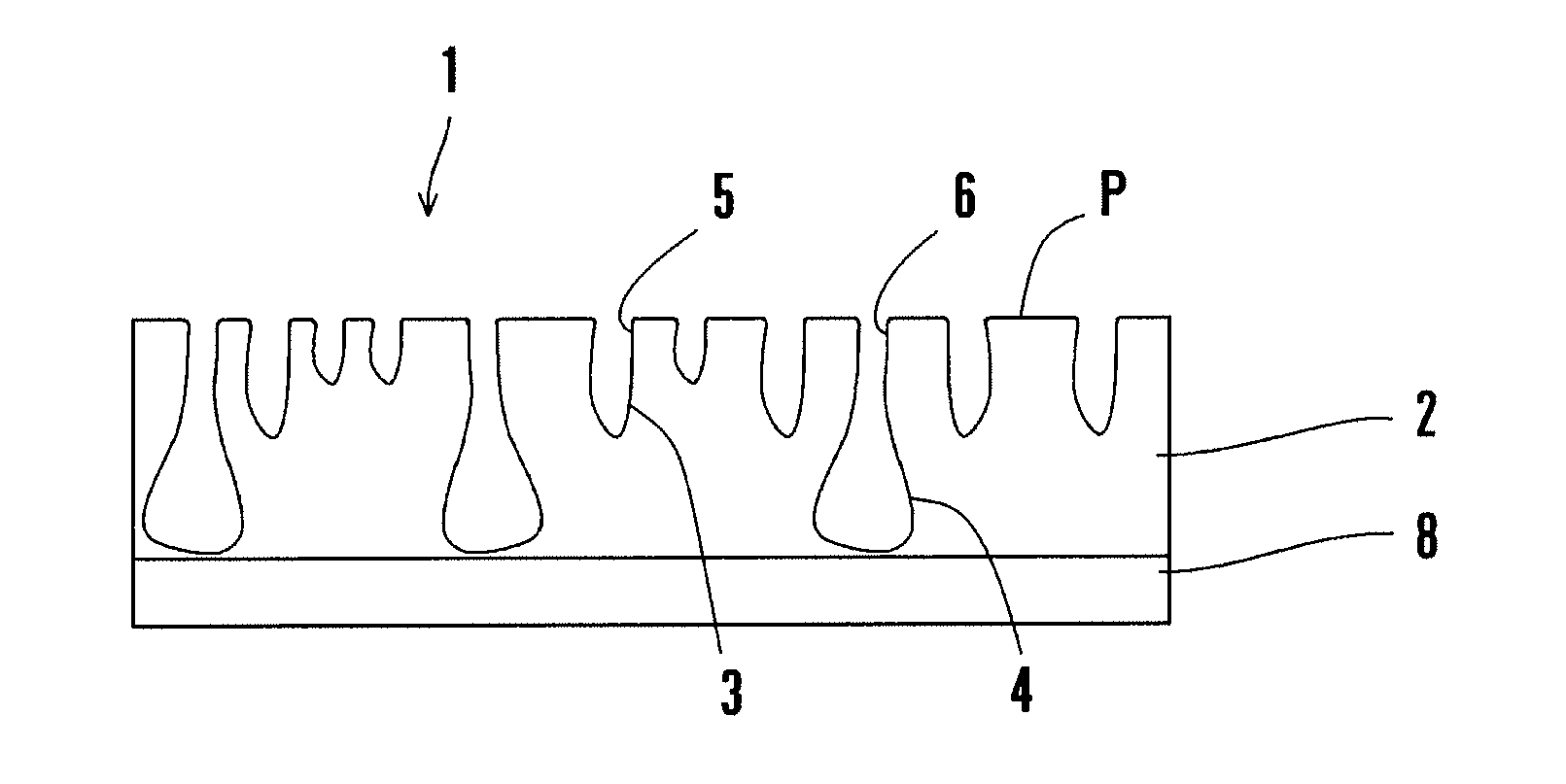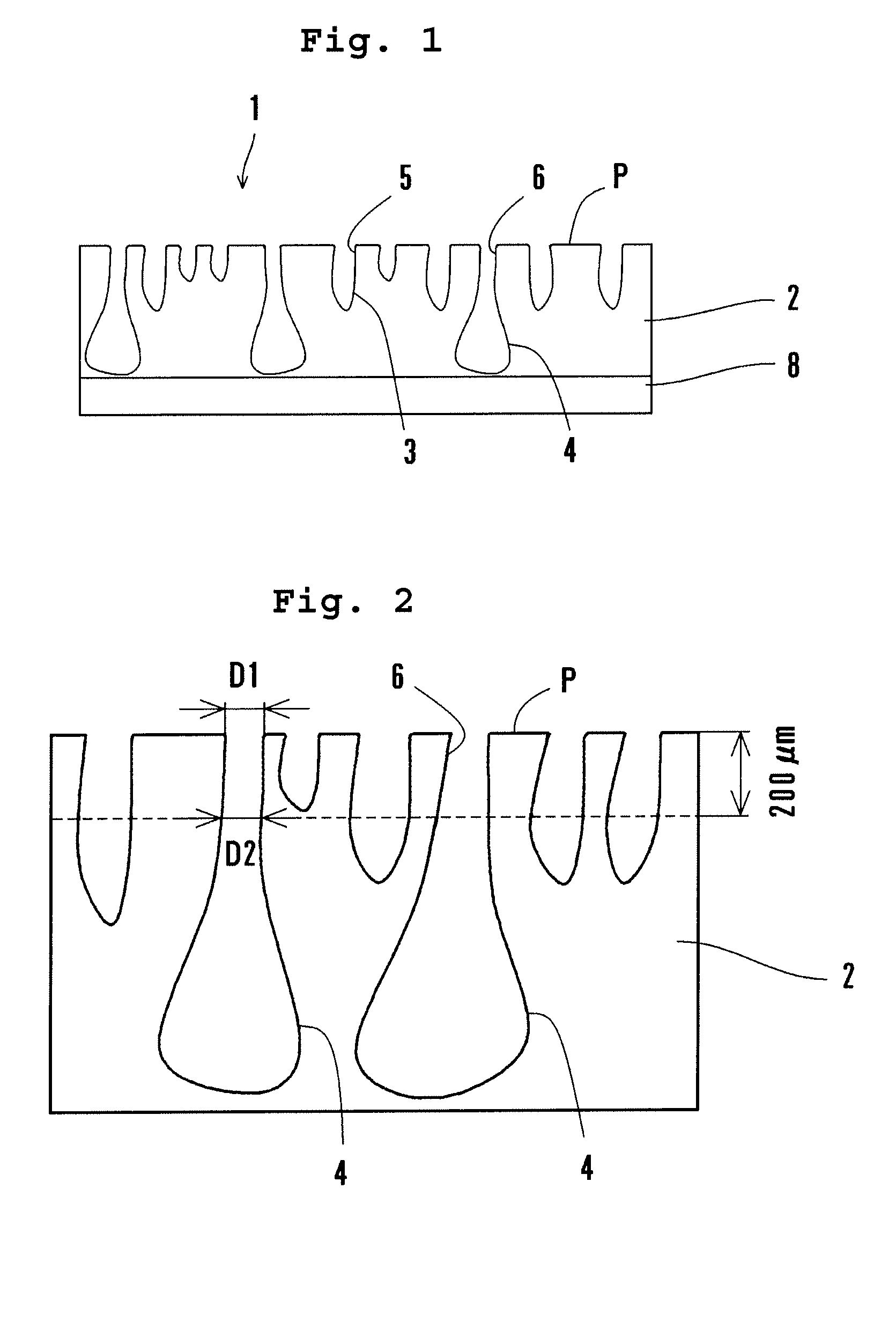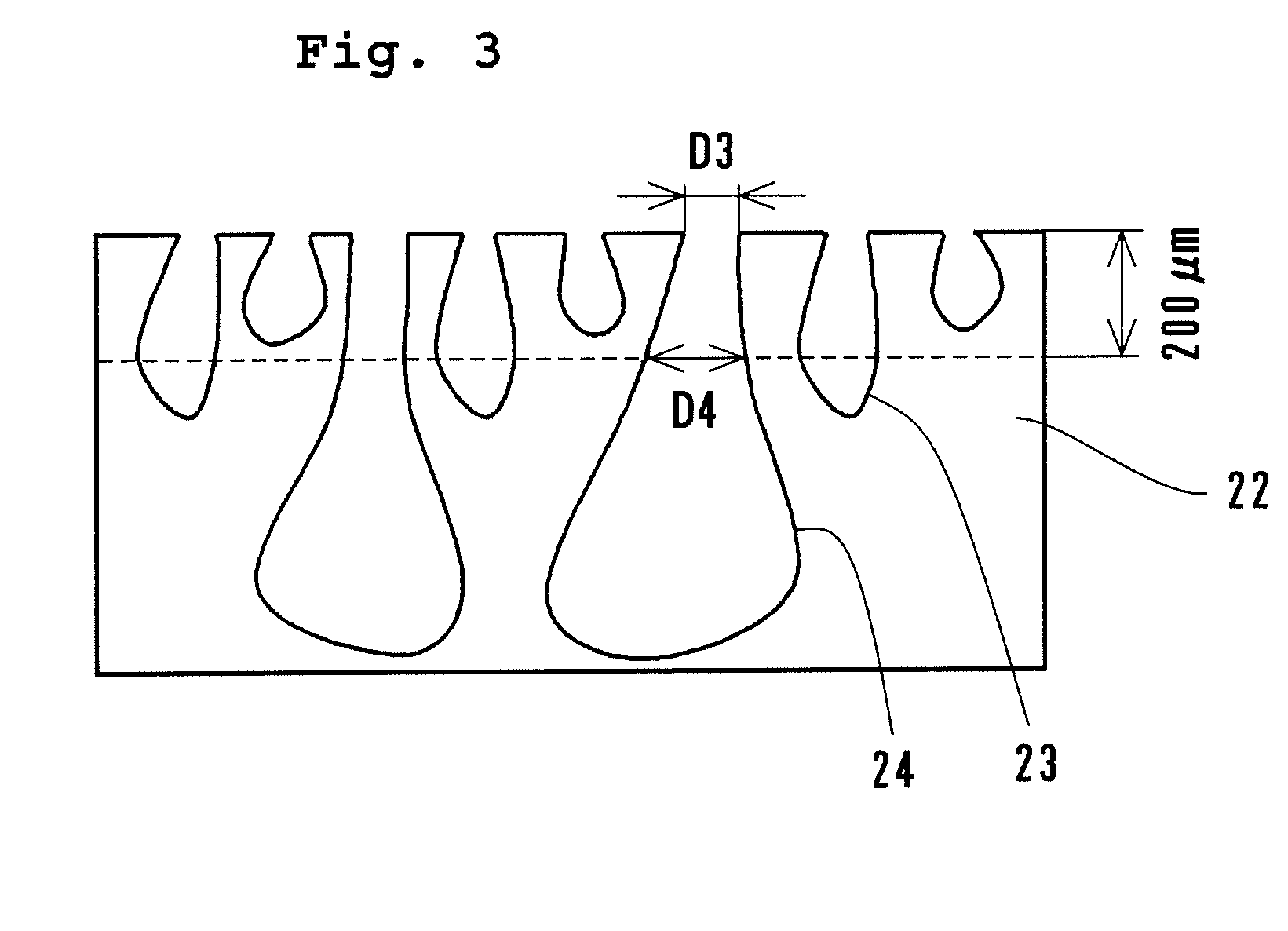Polishing pad
a technology of polishing pad and soft plastic sheet, which is applied in the field of polishing pad, can solve the problems of clogging of open pores, inconvenient cleaning, and insufficient life of polishing pad, and achieves excellent polishing performance, reduced clogging, and reduced clogging
- Summary
- Abstract
- Description
- Claims
- Application Information
AI Technical Summary
Benefits of technology
Problems solved by technology
Method used
Image
Examples
example 1
[0048]In Example 1, polyester MDI (diphenylmethane diisocyanate) polyurethane resin was used as the polyurethane resin. After 45 parts of DMF which is solvent, 40 parts of DMF dispersion liquid containing carbon black which is pigment in an amount of 30%, and 2 parts of hydrophobic active agent which is film forming stabilizer were mixed to 100 parts of DMF solution of the polyurethane resin to dissolve the polyurethane resin, 45 parts of ethyl acetate which is adjustment organic solvent was added to the dissolved polyurethane resin to prepare polyurethane resin solution. An application thickness and the temperature of solidifying liquid were set to 1.30 mm and 30 deg. Cel. at an application time of the polyurethane resin solution to the film formation base. A polishing pad 1 of Example 1 was manufactured by performing buffing processing to the skin layer side of the film forming resin so as to achieve buffing processing amount of 0.14 mm using sand paper of buff count No. 180, and ...
PUM
 Login to View More
Login to View More Abstract
Description
Claims
Application Information
 Login to View More
Login to View More - R&D
- Intellectual Property
- Life Sciences
- Materials
- Tech Scout
- Unparalleled Data Quality
- Higher Quality Content
- 60% Fewer Hallucinations
Browse by: Latest US Patents, China's latest patents, Technical Efficacy Thesaurus, Application Domain, Technology Topic, Popular Technical Reports.
© 2025 PatSnap. All rights reserved.Legal|Privacy policy|Modern Slavery Act Transparency Statement|Sitemap|About US| Contact US: help@patsnap.com



